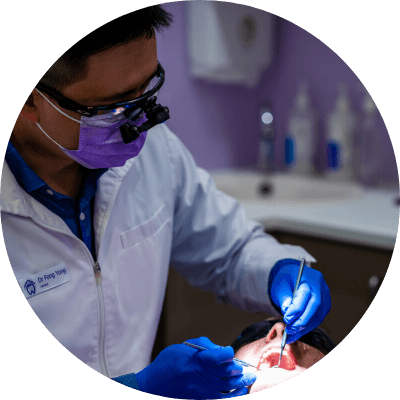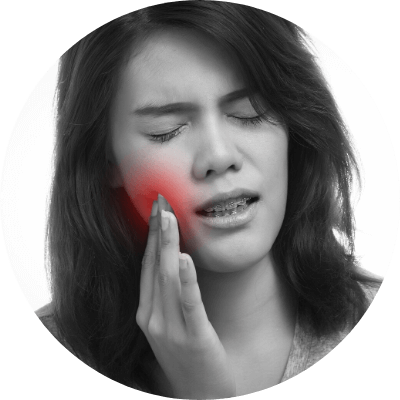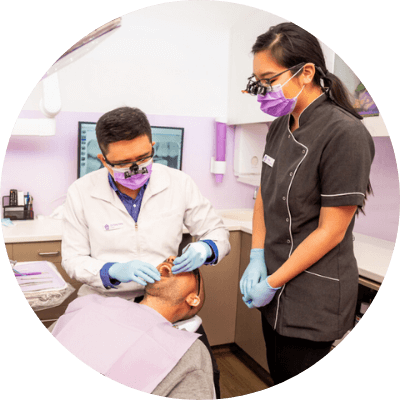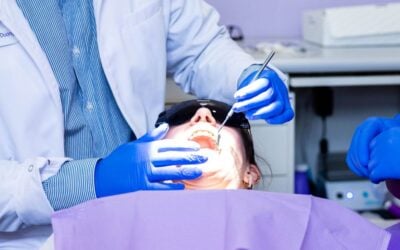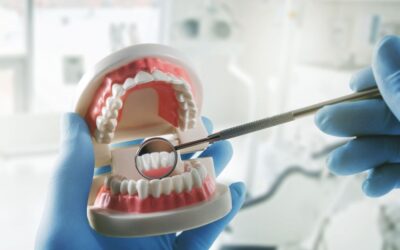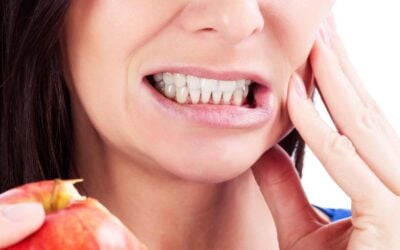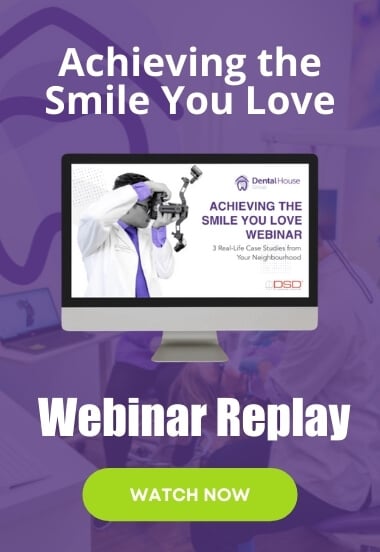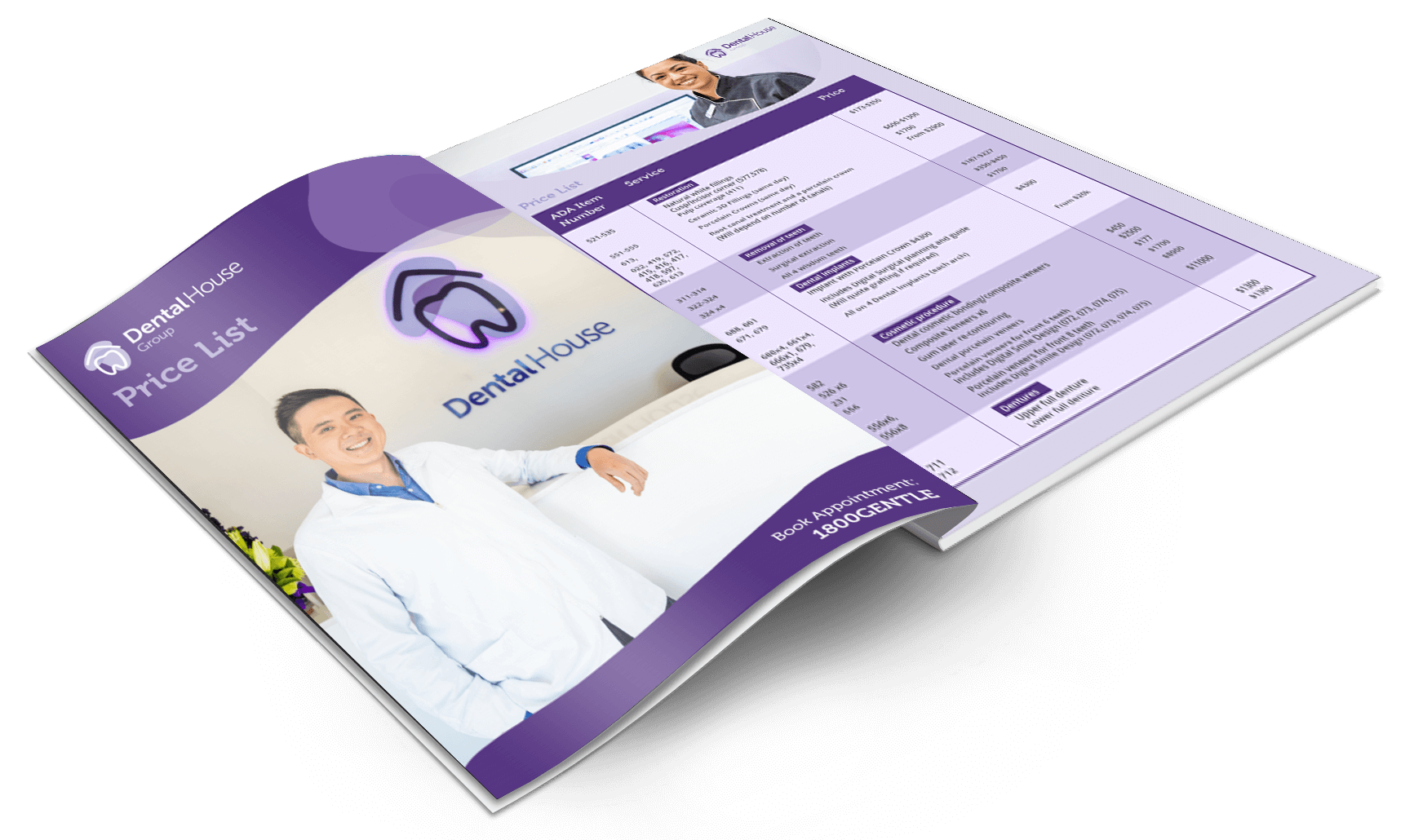What Are the Most Common Dental Emergencies?
What Are the Most Common Dental Emergencies?

A little different to a day of tooth filling and teeth cleaning.
That it’s after hours doesn’t stop oral health problems and accidents – sometimes it’s the lack of daily frenetic energy that brings issues to the fore. Among them there are a number of common ones that have people rushing to an emergency dentist.
Number one, of course is toothache. It could be a sign of infection, decay, damage or gum disease. If it’s infection, further delay in treatment risks the spread to other parts of your mouth, and the pain is already unbearable enough. Before you can make it to the emergency dentist, rinse your mouth with warm water and salt, take a maximum dose of vitamin C and gently brush around the site to help ease the discomfort. You can also take an over the counter painkiller if necessary (which by this point, it usually is).
Cavities are next on the list; caused by bacteria build up on the tooth that slowly eats through the enamel. A cavity usually makes itself known by the experience of sharp pain, or increased sensitivity to hot, cold and sugary.
Get thee to the dentist toot sweet. Your emergency dentist can easily fill your cavity. If it’s left too long, damage can be so extensive the tooth is beyond saving. This means a root canal; a much more involved and expensive procedure.
In Australia, having to have root canal surgery is considered completely, and absolutely rooted.
There are a thousand hilarious ways to chip a tooth if it isn’t you. Face planting the footpath. Ladders kissing snow. Mouth-bashing a stubbie two hours before the wedding. Chipped teeth are a typical dental injury that can also occur just biting down on something – and it doesn’t even have to be hard. A known brand burger even without its pickles was known to snap a tooth in half. The old maids of popcorn are a frequent perpetrator of the chipped tooth; as is the madness and badness of pretending to be a bottle opener.
A chip doesn’t have to be painful, but it needs to be repaired. Ignored, over time it can spread to a crack, which is not only more involved to treat, but means you could lose the tooth. Both (avoidable) options, of course take more moolah. Your emergency dentist will magically fix the missing piece with dental bonding, or a crown if it’s regal..I mean bigger.
Wisdom teeth are not the wisest evolutionary gift when Homo sapiens jaw has refused to comfortably accommodate them for more than 10,000 years.

It’s a long time for somethin’ not to give.
When teeth don’t come in properly, they become impacted: often it’s wisdom teeth because evolution was sleepin’ on the job. Impacted is when a tooth is stuck against the jaw or other teeth, or growing down into the jaw and needs to be assessed. They can come in crookedly and push other teeth out of alignment. Sudden pain at the back of your mouth may be due to your wisdom teeth. An emergency dentist will tell you if they can stay or need extracting – not Google. Because if not going to a dentist results in the area becoming excruciating, changing colour, discharging the gross and disgusting, you need immediate emergency attention.
Immediate.
So stop reading and call a cab.
More serious than a chipper little chip is a crack. Often they’re because of a blunt force accident or injury and means from the biting surface toward, or to the root has structurally separated. Cracks can be fine and difficult to see with the naked eye, which is why you need an emergency dental visit is a really good idea if you experience any mouth or tooth pain, or any unusual sensitivity after a force to the mouth. Dental assessment will ensure there’s either no permanent damage, or that the tooth can be saved. Removal usually happens if the crack is to the gum line.
Gum infection is becoming more prevalent. It’s the consequence of bacteria build up on the teeth and below the gum line. Avoidable with regular brushing, flossing and a 6-monthly dental appointment for a professional clean.
Sore, inflamed and bleeding gums is usually the tell, however, not always. Sometimes there is no bleeding, and little discomfort. The gum may even start to recede. Without treatment, teeth can become loose, and the jawbone can begin to disintegrate changing the shape of your jaw and the alignment of your teeth. An emergency dentist will attend to the infection with a deep clean and scale, a prescription, and a sense of relief.
Accident and sport injuries can knock teeth out because of accidents and if it happens, the sensible decision is to see an after hours dentist as soon as possible. Quick action improves the likelihood of actually saving the tooth. Despite the shock, if you can stick it back in the socket, do that; if not, make sure you rescue the tooth, clean it, and put it in milk if you can. Failing that, keep it in your mouth next to your cheek (I know; gross – and don’t swallow it). As tempting as it may be, don’t keep it suspended in tap water; being normally protected from it, root surface cells can’t tolerate H2O for extended periods of time.
Food caught between your teeth doesn’t sound like an emergency until it is. Small fish bones, seeds and popcorn are the usual suspects. When a dental pik, brushing, flossing, hard rinsing, and maybe even gentle manoeuvring with tweezers have proven unsuccessful in the removal, it can become very annoying and rather uncomfortable. Sometimes too there’s a bit of tenderness and temporary gum damage as a result of this endeavour, which just adds to the frustration, really.
Admit defeat and let the emergency dentist do their stuff with tools you’ll never find in your bathroom cabinet or kitchen drawer. (Don’t even think about the shed.) Whatever you do, don’t just leave it – there’ll be something rotten in the state of Denmark.. rather, the state of your dental.
Not going is not going to save you anything in the long run.
Food frequently being difficult to dislodge from between your teeth could also be a sign of periodontal disease and if an emergency dentist seems a bit dramatic, make an appointment with your regular dentist pronto.
Like today.
Sensitive teeth don’t empathise other teeth and get a bit wobbly during sad movies, they’re teeth that react uncomfortably with temperature, pressure or sweetness. Ice cream is a torture test. A hot drink can send you through the roof. Tooth sensitivity can mean a cavity, a crack, or gum disease – and it can also mean nothing.
Which isn’t the reason to not have it checked out.
If a tooth, or your teeth suddenly have sensitivity, you really do need to see the dentist. The remedy is most likely to be a filling, or gum treatment or possibly root canal. Best of all it can be none of these, with a brushing demonstration and recommendation for a soft bristled brush and de-sensitising toothpaste. These contain potassium nitrate, which blocks pain signals from tooth nerves to the brain. Sensitivity is almost non-existent after about two weeks.
Common they may be, these emergencies; comfortable they’re not. Reduce the probability of emergency dental treatment by removing the after-hours pain of infection, cavity or impaction by having those regular twice-yearly appointments with your own dentist.
If you don’t have on, find one.
Now that’s an emergency.
Note: All content and media on the Bacchus Marsh Dental House website and social media channels are created and published online for informational purposes only. It is not intended to be a substitute for professional medical advice and should not be relied on as health or personal advice.
Services we mentioned:
Related Articles
Separating Oral Health From The Rest Of The Body
Our mouths and oral cavities are inordinately sensitive. They are so for a number of reasons. Our lips are extremely sensitive. We are born and immediately know how to suck, as most mammals do. Life giving nutrition comes from the breast through the nipple and into...
Nano-HA: The Funny Way NASA Helps Reconstruct Periodontal Bone Loss
With the 45th anniversary of Life of Brian happening soon enough, a funny thing happened on the way to the Forum is an opener appreciated by the diminishing few and relevant in the way we so often forget the things that have come before. It’s no provocation - simply...
Gum Disease Is No Mystery – It’s Our Own Fault
Finding the untruth of something you’d always believed is always an interesting moment. Inevitably temperature is involved. Electric-cold Zorro-like swash across your back. A hot caterpillar prickle upside your head. Coccyx frozen, ice-filled. Warmth drowning...
Artificial Intelligence (AI) And Clinicians: Is ChatGPT in Competition?
Love it or hate it, Artificial Intelligence is here to stay. The terms ‘artificial’ and ‘intelligence’ are not conflicting…


